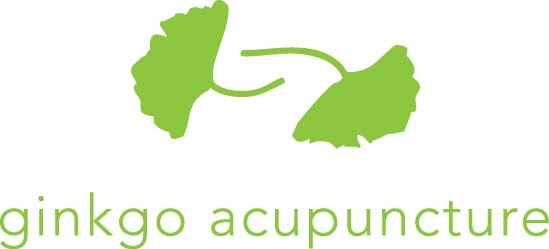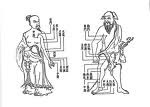Tuesday, May 22, 2018
Popping Pills
If you can purchase medication over the counter (OTC), it must be safe, right? Not exactly. Occasional use of OTC NSAID (non-steroidal anti-inflammatory) medications may not cause problems, however it's important to use them sparingly and not habitually, as daily use can have serious side effects. Daily ibuprofen use can result in: stomach and intestinal ulcers, uncontrolled bleeding, and poor kidney function. So think twice before popping a pill, especially for chronic pain, and consider alternatives, like acupuncture and acupressure, that don't carry serious risks.
Wednesday, May 16, 2018
Wu Wei: Action-less Action
"Man is weak and pliant when he is born,
solid and strong when he dies.
Herbs and trees are soft and lush when they germinate,
parched and hard when they die.
For that which is solid and powerful is part of death,
that which is soft and weak is part of life.
Therefore, if the weapons are powerful, victory is impossible;
A strong tree attracts the notice of the wood cutters.
Strength and power lie below; weakness and softness stand above."
"Be content with what you have;
rejoice in the way things are.
When you realize there is nothing lacking,
the whole world belongs to you."
-Lao-Tzu Tao Te Ching
Labels:
action-less action,
balance,
harmony,
taoism,
Traditional Chinese Medicine,
wu wei
Friday, May 11, 2018
The Garden and The Machine
What is the fundamental difference between Western and Eastern medical approaches? What is the philosophy of Traditional Chinese Medicine? The picture below simply demonstrates the basic tenets of each.
On the left side, we see the western model. Its is grounded in Cartesian philosophy, which separates mind and body. In this model, the body is seen as a machine, broken down into distinct parts. Western medicine requires specialists to tend to each part rather than the whole body. If a part is broken, it is fixed or removed, and may be replaced. The focus is on treating the patient after illness has taken hold. Western medicine is particularly helpful in managing acute injuries and emergencies.
The Eastern approach to medicine is pictured on the right. Here we see the human body as a garden, an ecosystem where all parts contain and affect the whole. Traditional Chinese Medicine is rooted in Taoism, and sees the body as a microcosm of the universal macrocosm. Just as a garden is affected by the environment, so to are our bodies. In Chinese Medicine, there is a fundamental principal called "yang sheng," which means "nourishing life." Here, the interior environment is of utmost importance and physicians were historically paid for keeping patients well rather than treating sickness. There's a Chinese adage that is often cited- "Don't dig a well when you're thirsty!" The goal in Eastern medicine is to nourish the body and mind, establishing harmony so that it is resistant to disease. It is only when the body is out of balance that disease can arise.
Of course, perfect harmony is difficult to attain and maintain, so Chinese medicine also intervenes to address imbalances in the body and mind, with the understanding that each part of the body is connected and effects the whole. Acupuncturists look at the constellation of signs and symptoms that a patient presents with to determine the pattern and root cause of their particular condition. The approach is to treat the fire (root cause) rather than the smoke (symptoms), and bring the body back into balance.
Subscribe to:
Comments (Atom)







